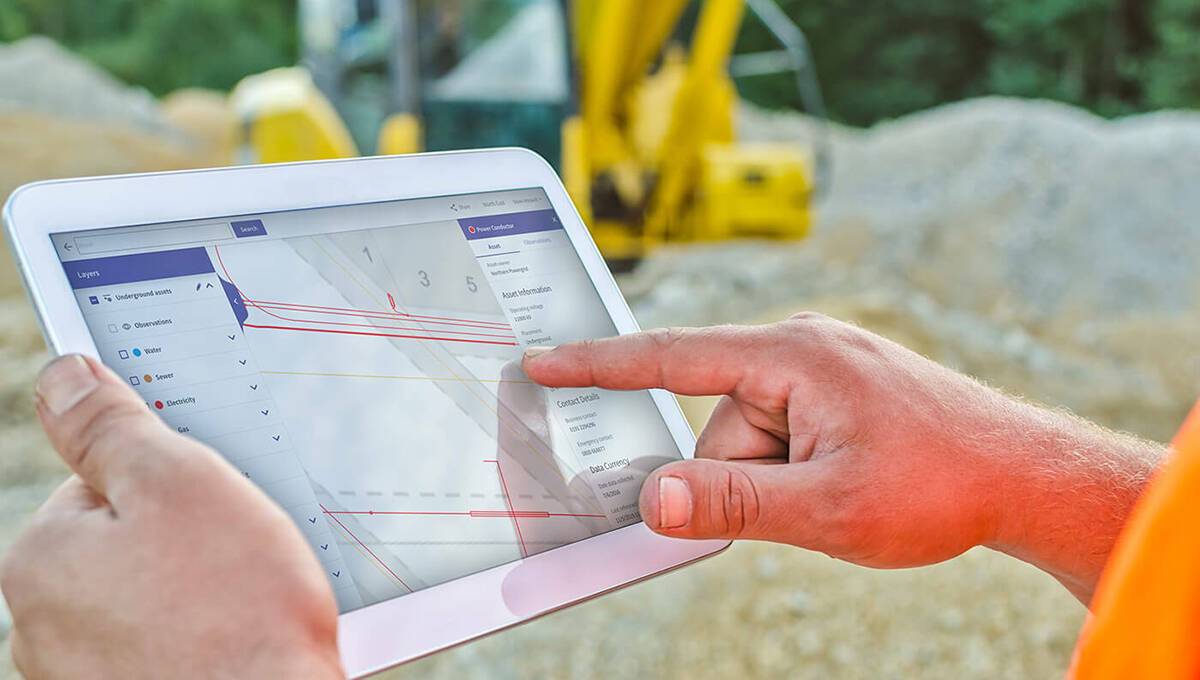A system of unique identification codes for all 139,000 individual properties in Southwark is powering an award winning customer service transformation project at the London Borough.
Using the Council's centralised local land and property gazetteer - part of the National Land and Property Gazetteer (NLPG) - staff at the Council's 200 seat contact centre and three one-stop-shops are handling more than 2 million customer interactions per annum. The proportion of inbound phones calls dealt with at first contact has risen from 50% to 90% since implementing the system. The NLPG gives a pinpoint location for every property in England and Wales and is the definitive standard for addressing for local authorities.
The project, a partnership between Southwark Council and Vangent, has delivered significant efficiency savings in just two years and was recognised as a leader in the field, when it won the European Contact Centre awards 2007 for best outsourced partnership. Under the contract Vangent has taken responsibility for the entire customer interface for all council services and in the first six months has implemented the contact centre, introduced one-stop-shops and re-engineered a host of projects from benefits to housing repairs.
"The centralised address database facilitates each and every customer interaction," said Dominic Cain, Head of Client Services. "Being able to pinpoint the exact location of a service request, enquiry or reported fault means we are better equipped to deal with it. This in turn means our customers receive better service and we operate more efficiently."
Southwark's Local Land and Property Gazetteer was originally created by combining disparate departmental address databases including those usedby Council Tax, the Electoral Register and National Non Domestic Rates. An address matching and data cleansing exercise was undertaken to ensure the validity and accuracy of each of the 139,000 individual records.
"The property database is used throughout the organisation ensuring a consistent and accurate approach to addressing," commented Alex Waugh, Custodian of the Local Land and Property Gazetteer. "The data also powers our web mapping service which receives about 2,000 visits per month, our intranet based geographical information system which has 900 users council- wide and is integrated with back office systems in planning, land charges, community safety and waste management."
22 April 2008
Notes to Editors:
The NLPG was initiated in 1999 to become the master address dataset for England and Wales and the central hub for the 376 address creating Local Authorities and their Local Land and Property Gazetteers (LLPGs). Based on unique property reference numbers (UPRNs) the underlying principle of these gazetteers is to provide a single definitive address database for all departments and systems across a local authority in order to cut costs, improve efficiency and service delivery.
The dataset enables various local authority departments - from revenue collection and environmental health, to social security, the electoral roll and education - to now offer true âjoined up' government. The benefits also go beyond service delivery. Fraud prevention, tax collection and disaster planning all benefit from the fact that each property is given a âUnique Property Reference Number' which transcends (property) numbers, names, descriptions (such as âThe Nursing Home') and postcodes. UPRNs are assigned for the full life of the plot and/or building.
The project was given a significant boost in 2005 with the introduction of the Mapping Services Agreement, which committed all Local Authorities to bringing their gazetteers up to standard and to start submitting regular updates to the NLPG hub for use by national and regional organisations. Collaboration with DNA-S (Definitive National Addressing for Scotland) who use the same BS7666 processes and database schemas means that the a British addressing infrastructure is now a reality.
Intelligent Addressing is a specialist private sector consultancy (an SME) employing recognised experts in addressing. It was originally set up to help develop the National Land and Property Gazetteer (NLPG) on behalf of local government and now manages the NLPG and NSG central data hubs under the terms of the Mapping Services Agreement (MSA) with local government.
Intelligent Addressing Contact:
Gayle Gander, Head of Marketing | T: 0207 747 3500 | E: [email protected] | www.intelligent-addressing.co.uk | www.nlpg.org.uk | www.thensg.org.uk
Editorial enquiries and colour separation requests:
William Allbrook T: 01666 826641 F: 01666 824668
The Improvement and Development Agency (IDeA) The IDeA works in partnership with all councils, to enhance the performance of the best, accelerate the speed of improvement of the rest, and develop the sector as a whole. IDeA has brokered the Mapping Services Agreement (MSA) with Intelligent Addressing to develop the NLPG and NSG, through the Local Government Information House (LGIH), a wholly owned subsidiary of the Agency. Working in partnership with the local government community developing national infrastructure projects that enable councils to deliver local services more effectively, LGIH acts as an intermediary between the public and the private sector enabling it to negotiate with private companies on behalf of local authorities in order to provide key parts of a technical infrastructure for improved service delivery.
The NLPG is run by the Improvement and Development Agency (IDeA) and Intelligent Addressing (IA) on behalf of local government
IDeA contacts:
Steve Brandwood, Programme Manager | T: 020 7296 6615 | E: [email protected]
Media: Paul Bailey | T:020 7296 6529
The project, a partnership between Southwark Council and Vangent, has delivered significant efficiency savings in just two years and was recognised as a leader in the field, when it won the European Contact Centre awards 2007 for best outsourced partnership. Under the contract Vangent has taken responsibility for the entire customer interface for all council services and in the first six months has implemented the contact centre, introduced one-stop-shops and re-engineered a host of projects from benefits to housing repairs.
"The centralised address database facilitates each and every customer interaction," said Dominic Cain, Head of Client Services. "Being able to pinpoint the exact location of a service request, enquiry or reported fault means we are better equipped to deal with it. This in turn means our customers receive better service and we operate more efficiently."
Southwark's Local Land and Property Gazetteer was originally created by combining disparate departmental address databases including those usedby Council Tax, the Electoral Register and National Non Domestic Rates. An address matching and data cleansing exercise was undertaken to ensure the validity and accuracy of each of the 139,000 individual records.
"The property database is used throughout the organisation ensuring a consistent and accurate approach to addressing," commented Alex Waugh, Custodian of the Local Land and Property Gazetteer. "The data also powers our web mapping service which receives about 2,000 visits per month, our intranet based geographical information system which has 900 users council- wide and is integrated with back office systems in planning, land charges, community safety and waste management."
22 April 2008
Notes to Editors:
The NLPG was initiated in 1999 to become the master address dataset for England and Wales and the central hub for the 376 address creating Local Authorities and their Local Land and Property Gazetteers (LLPGs). Based on unique property reference numbers (UPRNs) the underlying principle of these gazetteers is to provide a single definitive address database for all departments and systems across a local authority in order to cut costs, improve efficiency and service delivery.
The dataset enables various local authority departments - from revenue collection and environmental health, to social security, the electoral roll and education - to now offer true âjoined up' government. The benefits also go beyond service delivery. Fraud prevention, tax collection and disaster planning all benefit from the fact that each property is given a âUnique Property Reference Number' which transcends (property) numbers, names, descriptions (such as âThe Nursing Home') and postcodes. UPRNs are assigned for the full life of the plot and/or building.
The project was given a significant boost in 2005 with the introduction of the Mapping Services Agreement, which committed all Local Authorities to bringing their gazetteers up to standard and to start submitting regular updates to the NLPG hub for use by national and regional organisations. Collaboration with DNA-S (Definitive National Addressing for Scotland) who use the same BS7666 processes and database schemas means that the a British addressing infrastructure is now a reality.
Intelligent Addressing is a specialist private sector consultancy (an SME) employing recognised experts in addressing. It was originally set up to help develop the National Land and Property Gazetteer (NLPG) on behalf of local government and now manages the NLPG and NSG central data hubs under the terms of the Mapping Services Agreement (MSA) with local government.
Intelligent Addressing Contact:
Gayle Gander, Head of Marketing | T: 0207 747 3500 | E: [email protected] | www.intelligent-addressing.co.uk | www.nlpg.org.uk | www.thensg.org.uk
Editorial enquiries and colour separation requests:
William Allbrook T: 01666 826641 F: 01666 824668
The Improvement and Development Agency (IDeA) The IDeA works in partnership with all councils, to enhance the performance of the best, accelerate the speed of improvement of the rest, and develop the sector as a whole. IDeA has brokered the Mapping Services Agreement (MSA) with Intelligent Addressing to develop the NLPG and NSG, through the Local Government Information House (LGIH), a wholly owned subsidiary of the Agency. Working in partnership with the local government community developing national infrastructure projects that enable councils to deliver local services more effectively, LGIH acts as an intermediary between the public and the private sector enabling it to negotiate with private companies on behalf of local authorities in order to provide key parts of a technical infrastructure for improved service delivery.
The NLPG is run by the Improvement and Development Agency (IDeA) and Intelligent Addressing (IA) on behalf of local government
IDeA contacts:
Steve Brandwood, Programme Manager | T: 020 7296 6615 | E: [email protected]
Media: Paul Bailey | T:020 7296 6529



